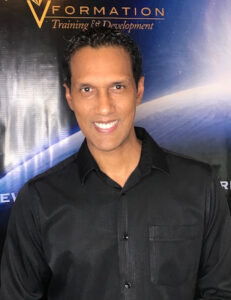
Blog
Authenticity and The Nature of Intent
Why are some people so afraid to speak up? Why do some suppress their needs to simply keep the peace? And why is it so hard for people to be themselves? These scenarios are all too common but can we identify a problem when there is one? The fact is that we can’t always tell if someone agrees with a particular idea especially if they have a fear of opening up. Likewise, what about those who say and do things to influence situations in their favour at the expense of others? We can’t always tell when people are being honest and when they have your best interest at heart. When we think of the nature of human behaviour, the aspect we really want to explore is the idea of AUTHENTICITY.
WHAT AUTHENTICITY REALLY MEANS
Authenticity is the ability and confidence to express oneself freely and clearly and includes an element of psychological maturity that involves a high degree of self-awareness as well as social awareness and using them to manage ourselves and others in a variety of situations. In other words, being authentic means being true to oneself, genuine, and sincere.
“Being flexible with who you are is okay. It is not denying or disrespecting who you are.”
– William Fleeson (Professor of Psychology at Wake Forest University)
Almost all of my work experience has been in the sales environment and very often, a new customer will give me the “let me hear your pitch” look. The truth is; I didn’t always have a pitch!! For anyone who has anything to do with managing  the customers’ experience, we know one thing: we better be careful not to come across like we are only thinking about ourselves. It’s not whether it will work or not. It’s not whether you truly believe in your product/service or not. The real problem is – when word gets around that you are not really helping someone or adding value in some way, customers will disappear and your reputation may never recover. The difference between what we say when manipulating someone and what we say when legitimately adding value for a customer, for example, is the INTENT, and many times, the intent will show and it should show up as genuine.
the customers’ experience, we know one thing: we better be careful not to come across like we are only thinking about ourselves. It’s not whether it will work or not. It’s not whether you truly believe in your product/service or not. The real problem is – when word gets around that you are not really helping someone or adding value in some way, customers will disappear and your reputation may never recover. The difference between what we say when manipulating someone and what we say when legitimately adding value for a customer, for example, is the INTENT, and many times, the intent will show and it should show up as genuine.
It’s therefore inaccurate to imply that people who say and do what they feel are being authentic especially when they are disrespectful to others.
WHY DOES “INTENT” MATTER IN AUTHENTICITY?
Manipulation has a negative connotation but some people make a living out of manipulating others and quite frequently, it works. For example, magicians manipulate others for entertainment, salespeople sometimes manipulate others for the sale and in our personal lives, we may manipulate others to get what we want. We may even manipulate our own children to get them to behave. Bearing these examples in mind, is manipulation always negative? No!! It really depends on the INTENT. For a magician, for example, the intent is to entertain.
Intent can fit into four scenarios:
1) The intent is one of dominance, the I WIN, YOU LOSE scenario. This can be manifested as aggressive behaviours such as insults (not hidden) or manipulation with negative intent (hidden). Don’t be naive in thinking that when you are trying to manipulate, it doesn’t come across that way. You don’t have to know someone well to know when they are being genuine. I am sure that we can distinguish a fake smile from a real one even from total strangers. Positive feedback from a leader can appear less than genuine as well, especially when it is not common practice for the person giving it. At times, the I win, you lose scenario may simply show up as someone saying something in anger, but acting out in anger or even being controlling, distances you from being authentic.
Unfortunately, individuals displaying aggressive or manipulative behaviour consistently may have issues that run much deeper than what could be addressed here. They can sometimes even fall into a second scenario:
2) The I LOSE, YOU LOSE scenario happens when someone will sacrifice a positive result if they feel they are going to be getting the “short end of a stick.”
Change is possible but it will only come from an awareness of the negativity of this behaviour and a desire to change it.
3) YOU WIN, I LOSE is the scenario where people allow others to get their way in an effort to preserve a relationship. They have a desire to fit in and to conform. Even though they may create initial rapport, a person exhibiting this behaviour may appear to be a “pushover” and could eventually be disrespected, even by those who mean well. The solution is to learn to speak up when you are being treated unfairly but do it in a way that will possibly aim for a possible win-win. It is not always conceivable, and people will sometimes react negatively to your newfound assertiveness, but remember that you will be closer to your goal.
“Authenticity is consistently associated with acting highly extroverted, even for those who characterize themselves as introverts,”
– William Fleeson (Professor of Psychology at Wake Forest University)
4) The intent is for the greater good, that is, to create a WIN-WIN scenario. If you legitimately do or say something to help someone, the level of trust will increase. Even negative feedback is okay if the right intent is there – in other words, if you are trying to develop someone, brutal honesty is sometimes necessary. Negative feedback can actually work well if the recipient feels that you are on their side. In other words, how does your authenticity affect others? Do you know? Are you able to put yourself in their “shoes”? Even expressing anger in the right way is positive. This is actually a form of win-win.
The more you interact with others openly, the better you will know yourself.
AUTHENTICITY REMOVES THE THREAT OF ARTIFICIAL HARMONY
 Harmony is sometimes artificial. When people don’t speak up, issues are not addressed and because of this, those around us may think that everything is ok. However, when we express ourselves authentically, we let others know our true motivations, concerns, goals, or values. It allows people to know who we are. Will everyone like you? NO!! Getting along with everyone is an unrealistic goal, not even Jesus did that. However, being authentic around people will give you a better chance of knowing the truth around you. If you don’t express yourself in an authentic way, people will not be authentic around you. Think of a leader who creates an environment of fear. Would employees feel comfortable approaching that leader if they had a personal issue? You may think that all is well when it is actually the opposite.
Harmony is sometimes artificial. When people don’t speak up, issues are not addressed and because of this, those around us may think that everything is ok. However, when we express ourselves authentically, we let others know our true motivations, concerns, goals, or values. It allows people to know who we are. Will everyone like you? NO!! Getting along with everyone is an unrealistic goal, not even Jesus did that. However, being authentic around people will give you a better chance of knowing the truth around you. If you don’t express yourself in an authentic way, people will not be authentic around you. Think of a leader who creates an environment of fear. Would employees feel comfortable approaching that leader if they had a personal issue? You may think that all is well when it is actually the opposite.
Therefore, don’t pretend to be nice, be nice. Don’t give with the expectation that you will receive, give to give. Intent matters. Don’t fake intent. Be authentic with your intentions, and aim for a win-win. Even though it’s not always possible, don’t you think it can make all the difference in getting the results you want?
Tony  Ragoonanan is the Founder of V-Formation Training & Development. As a Trainer and Performance Management Specialist, he helps individuals, teams, and businesses to align behaviours and goals, create the right organizational culture and maximize capability. Outside of this, it’s all about family, football, and fitness!!
Ragoonanan is the Founder of V-Formation Training & Development. As a Trainer and Performance Management Specialist, he helps individuals, teams, and businesses to align behaviours and goals, create the right organizational culture and maximize capability. Outside of this, it’s all about family, football, and fitness!!
868-681-3492 | tonyr0909@gmail.com




Leave a reply